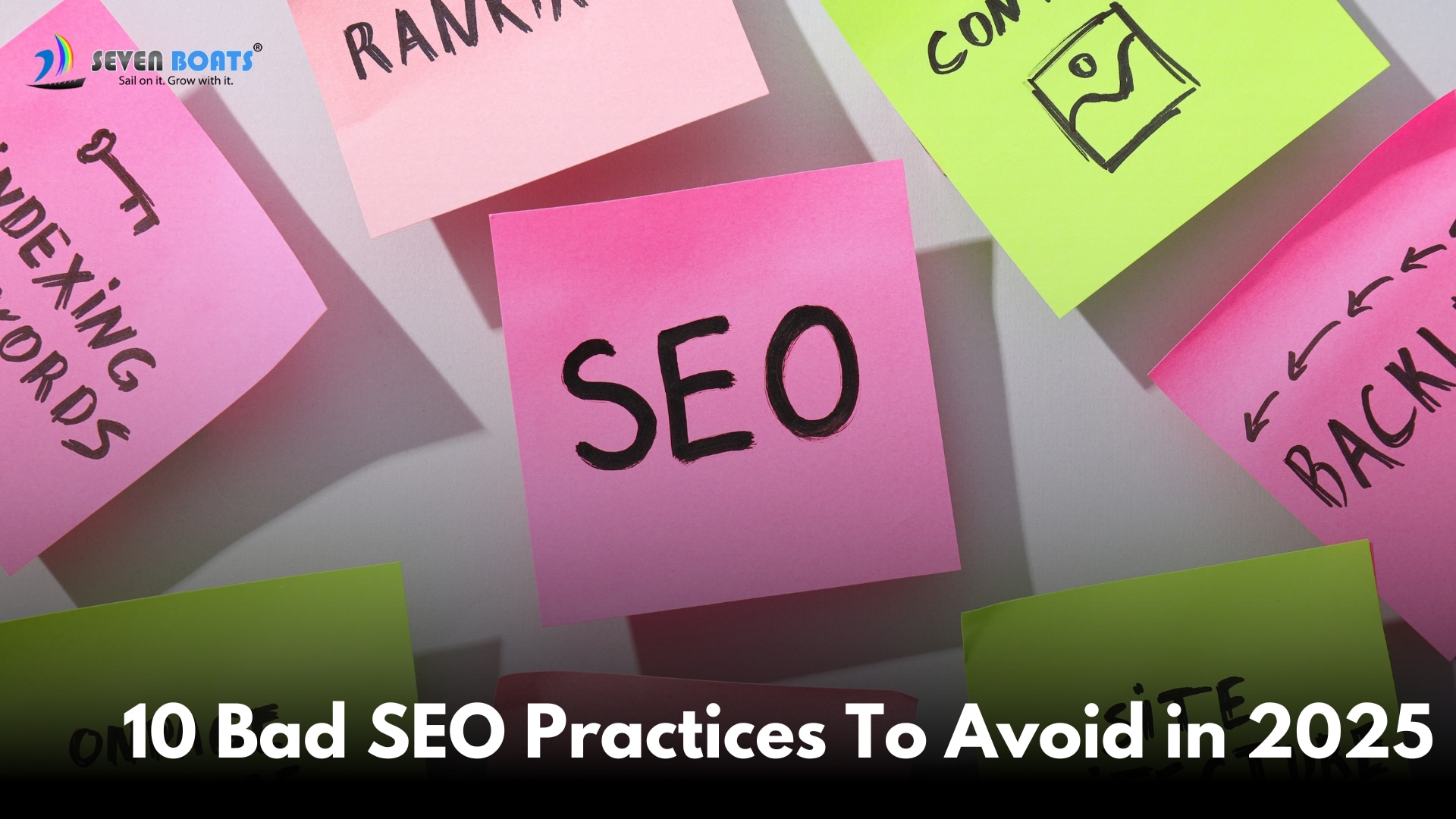Search engine optimization (SEO) isn’t just about ranking on Google; it’s about sustaining meaningful traffic, providing valuable content, and ensuring that your audience has the best possible experience. With SEO practices evolving every year, 2025 is no different. However, bad habits and outdated techniques still lurk in many strategies. These can do more harm than good, leaving your website buried under better-optimized competitors. Let’s dive into the bad SEO practices you absolutely must avoid in 2025.
Overstuffing Keywords Like It’s 2010
Keyword stuffing has long been an SEO mistake, but in 2025, it’s outright harmful. Search engines have evolved, and their algorithms prioritize readability and user intent over sheer keyword density. Stuffing irrelevant or excessive keywords into your content doesn’t fool Google anymore—it makes your page look spammy and ruins the user experience. Instead, focus on integrating keywords naturally and using synonyms or related phrases to make the content feel authentic.
Ignoring Mobile Optimization
Mobile traffic isn’t just significant—it’s dominant. In 2025, failing to optimize your site for mobile users is akin to telling half your audience they don’t matter. Responsive design, fast load times on mobile, and mobile-first indexing are critical. If your site doesn’t function seamlessly on smaller screens, expect a higher bounce rate and lower rankings. Ensure you’re using tools like Google’s Mobile-Friendly Test to catch issues early.
Focusing Solely on Backlinks Without Relevance
Backlinks remain an important ranking factor, but the quality and relevance of those links matter more than the sheer number. Building a network of irrelevant or low-quality backlinks in 2025 is an outdated tactic that can get you penalized. Search engines want to see links that genuinely add value and connect your content to other credible sources. Prioritize gaining backlinks from authoritative sites in your niche rather than random directories or forums.
Forgetting to Optimize for Voice Search
Voice search isn’t a novelty anymore; it’s a growing trend that demands attention. Ignoring voice search optimization in 2025 is a missed opportunity. People phrase queries differently when speaking compared to typing, often using long-tail, conversational keywords. Your content strategy needs to include these natural language patterns to stay relevant. Focus on creating content that answers direct questions clearly, which aligns well with voice search algorithms.
Overlooking Core Web Vitals
Google’s Core Web Vitals have been a ranking factor for years, and their importance hasn’t diminished in 2025. Pages that load slowly, shift content while loading, or aren’t interactive fast enough create frustration for users and penalties from search engines. Optimize images, use lazy loading, and minimize CSS and JavaScript to ensure smooth performance. Prioritize a seamless, fast experience that keeps users engaged.
Overreliance on AI-Generated Content Without Editing
While AI tools have revolutionized content creation, blindly relying on them without proper editing or refinement can hurt your SEO. In 2025, search engines are increasingly adept at recognizing generic, low-value content. AI can provide a great foundation, but human oversight is essential to add depth, relevance, and a unique voice. Balance efficiency with authenticity to ensure your content resonates with your audience.
Not Addressing Duplicate Content
Duplicate content isn’t just about plagiarism; it includes having similar or identical pages within your own site. In 2025, search engines punish sites that confuse users with repetitive content, as it dilutes value and hampers rankings. Use canonical tags to specify preferred versions of pages, and regularly audit your site to identify and eliminate redundancies. Quality trumps quantity, so focus on creating unique and valuable pages.
Ignoring Search Intent
In 2025, optimizing for search intent is non-negotiable. Users come to your site with a specific purpose—whether informational, navigational, or transactional. Misaligning your content with their expectations leads to high bounce rates and lower rankings. Analyze the type of content that ranks for your target keywords and structure your pages accordingly. Offering blog posts for transactional queries or pushing products for informational queries will drive users away.
Neglecting Structured Data
Structured data, or schema markup, helps search engines understand your content better, which enhances visibility in search results. Neglecting it in 2025 means missing out on rich snippets, FAQs, and other enhanced features that make your site stand out. Implement schema for product pages, articles, reviews, and local business details to give your pages an edge in rankings. It’s a technical step, but one that can significantly impact your visibility.
Chasing Trends Without Long-Term Strategy
SEO trends come and go, and chasing every shiny new tactic without a cohesive strategy can leave your site directionless. In 2025, SEO success depends on consistency, quality, and adaptability. While it’s essential to stay updated, ensure any trend you adopt aligns with your broader goals and audience needs. Balance experimentation with tried-and-true practices to maintain steady growth.
Bad SEO practices in 2025 aren’t just about breaking rules; they’re about ignoring the fundamental principles of user-centric, value-driven optimization. By steering clear of outdated tactics and focusing on what truly benefits your audience, you’ll not only rank better but also build a sustainable, authoritative online presence.








Your actionable tips make it easy for anyone to avoid bad practices and improve their online strategy. Nice!
SEO (Search Engine Optimization) involves optimizing a website to improve its visibility on search engines like Google. Effective SEO strategies include
Keyword Research,On-Page Optimization,Technical SEO,Content Creation,Link Building,Local SEO,Analytics and Monitoring..,Implementing these strategies can enhance your website’s visibility, drive organic traffic, and improve search engine rankings.